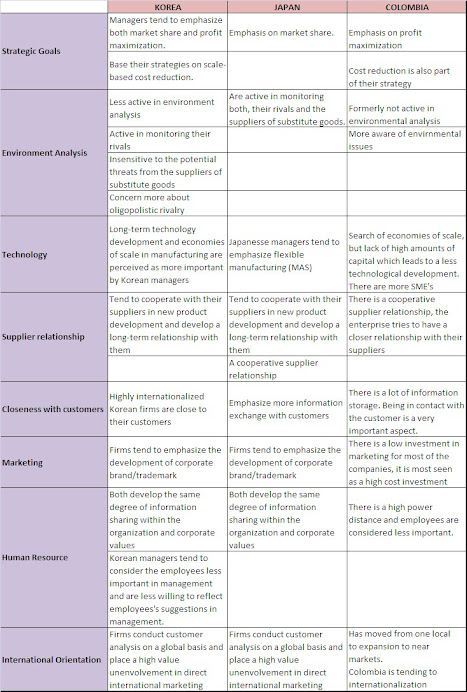During the years, the meaning for the word CULTURE has changed significantly. However, some authors agree that it is those values, beliefs, customs and behavior that a certain group of people share within a society.
In words of Edward Taylor, is “that complex whole which includes knowledge, belief, art, morals, law, custom, and any other capabilities and habits acquired by man as a member of society" (Taylor 1924 [orig. 1871]:1)
Since the 80’s, due to the decline of the north American economy, and the success of the Japanese, academics began to study Japanese’s companies and introduce the definition of culture in ORGANIZATIONS. As some authors state, in corporations there are certain social interrelations that its members develop, the ones at the same time are influenced by external and internal factors that compound the well known ORGANIZATIONAL CULTURE. That culture is shared through generations, can be shaped, and it is adaptable to its individuals and to the time conditions.
In order to construct a better definition of culture in the organizations, it is necessary to quote EDGAR SCHEIN, who defines it as:"A pattern of shared basic assumptions that the group learned as it solved its problems of external adaptation and internal integration, that has worked well enough to be considered valid and, therefore, to be taught to new members as the correct way you perceive, think, and feel in relation to those problems"
To conclude, there is not a difference between corporate culture and culture itself. Organizational culture is an extension of the definition of culture in a specific scenario.


No hay comentarios:
Publicar un comentario